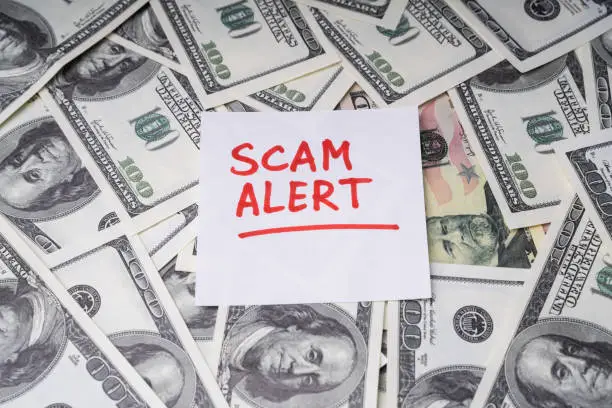Introduction

Table of Contents
How to Avoid Student Loan Scams
As student loan debt increases, there are numerous scammers who exploit borrowers promising non-existent loan forgiveness, consolidation, or repayment relief. Such scams trick individuals into paying advance fees or sharing sensitive data.
This guide will make you smarter about recognizing student loan scams, how to stay away from them, and what to do if you’ve been duped.
What Are Student Loan Scams?
Student loan scams are deceptive schemes that aim to steal funds, personal details, or both from borrowers. Scammers often intend to provide loan forgiveness or lower payments but actually aim to collect bogus fees or steal identities.
Typical Types of Student Loan Scams
- Bogus Loan Forgiveness Programs
Scammers say they will wipe out your student loan debt for a fee up front.
Only the government provides true loan forgiveness programs (such as PSLF). - Advance-Fee Loan Scams
You are requested to make a payment before getting a loan.
Real lenders never demand initial payments. - Phishing Scams
Spoof calls or emails feign to be student loan servicers.
They request Social Security numbers or banking information.
Legitimate servicers never request confidential information through the phone or mail. - Bogus Loan Consolidation Services
Con artists offer to consolidate your loans at a fee.
The actual Direct Loan Consolidation program is free at studentaid.gov. - Private Loan Scams With High Interest
Deceptive lenders approach desperate borrowers with exorbitant interest rates (200%+ APR).
Always review genuine lender ratings prior to borrowing.
Red Flags to Be Aware Of
???? Guaranteed Loan Forgiveness – Forgiveness is only provided by select federal programs after paying for several years.
???? Upfront Fees Required – Genuine student loan help never requests prepayment.
???? Pressure to Act Quickly – Scammers push you to act quickly to avoid investigation.
???? Requests for Sensitive Information – Government servicers never ask for Social Security or banking info via email or phone.

How to Verify a Legitimate Student Loan Provider
✅ Check the lender’s Better Business Bureau (BBB) rating.
✅ Verify their registration with the Federal Student Aid Office.
✅ Look up customer reviews on trusted websites.
✅ Contact your official loan servicer to confirm any offers.
What to Do If You’ve Been Scammed:
Report the scam to either the Federal Trade Commission (FTC) or Consumer Financial Protection Bureau (CFPB).
Stop any fraudulent activities with your bank.
Check for suspicious activity in your credit report.
Freeze your credit for identity theft.

How to Safeguard Yourself against Future Scams:
How to Safeguard Yourself against Future Scams:
Utilize official websites such as studentaid.gov for the help of your loan.
Avoid giving personal information to unauthenticated sources.
Reject calls, messages, or emails saying “immediate loan forgiveness.”
Create notices for suspicious spending.
Conclusion
Student loan scams are rampant, but you can defend yourself by watching for red flags and checking out lenders. Don’t ever pay upfront fees, give away personal data, or believe “guaranteed forgiveness” deals. If it seems too good to be true, it likely is.
FAQs
- Are there legitimate student loan forgiveness programs?
Yes, Public Service Loan Forgiveness (PSLF) and Income-Driven Repayment (IDR) Forgiveness are authentic programs. - How do I verify if a student loan company is legitimate?
Check the company with the Better Business Bureau (BBB) and also studentaid.gov. - What can I do if I provided my information to a scammer?
Report the fraud to the FTC, watch your credit, and reach out to your loan servicer right away. - Is it against the law to charge a fee for student loan assistance?
Yes, federal loan services are free, and it is usually illegal to charge a fee to assist. - How do I report a student loan scam?
Report a complaint to the FTC (Federal Trade Commission) at reportfraud.ftc.gov.